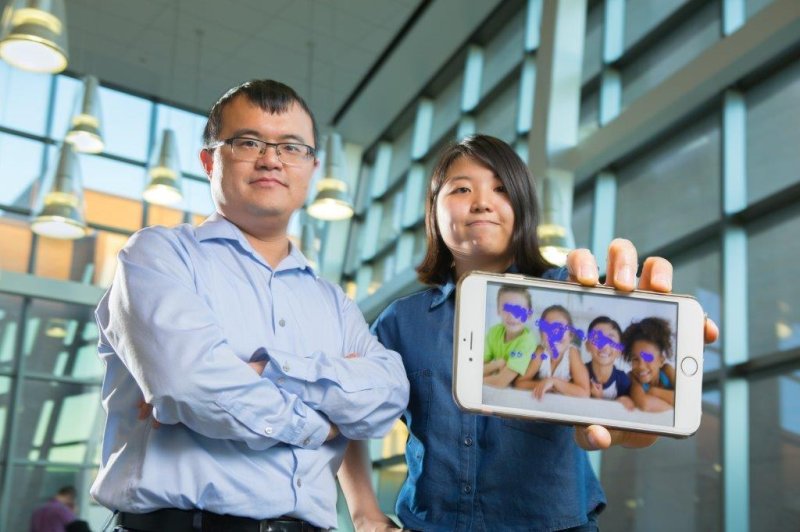The program was developed by college student Kun Woo Cho (R), with help from Wenyao Xu (L), an assistant professor at SUNY Buffalo. Photo by University at Buffalo
BUFFALO, N.Y., Nov. 11 (UPI) -- An undergraduate student has developed a mobile method parents may be able to use to screen their children for early signs of autism spectrum disorder.
Kun Woo Cho of the State University of New York at Buffalo partnered with investigators in a study that aimed to uncover detection tools for identifying autism in children as young as 2 years old. Their paper was presented at the IEEE Wireless Health conference in October.
The study detailed the development of a program that can be used on a computer, tablet, or smartphone. The authors say early detection is critical for developing a sound treatment strategy.
"The brain continues to grow and develop after birth. The earlier the diagnosis, the better," assistant pediatrics professor Michelle Hartley-McAndrew said in a press release. "Then we can inform families and begin therapies which will improve symptoms and outcome."
The app works by tracking a child's eye movement while looking at pictures of social settings and scanning for signs autism. According to researchers, children with ASD process such images very differently from children without ASD, who tend to be more focused.
"We speculate that it is due to their lack of ability to interpret and understand the relationship depicted in the social scene," Cho explained.
The team says their invention is less intrusive than many conventional detection methods, saying it only takes up to 54 seconds to use. During the study, the program completed its analysis with a 93.96 percent accuracy rating.
Despite what appear to be promising results, the developers stress their work is not yet over.
"Right now it is a prototype," Cho added. "We have to consider if other neurological conditions are included, like ADD, how that will affect the outcome."
Scientists involved with the project note there are many challenges associated with diagnosing and treating autism spectrum disorder, but are confident their invention will help parents determine if a clinical examination is needed.















